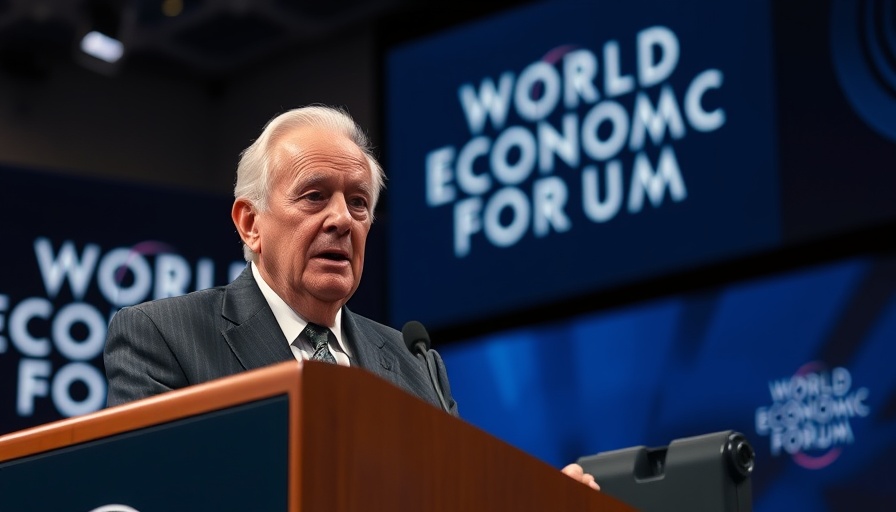
Schwab’s Resignation: A New Era for the World Economic Forum?
In a surprising move that marks a significant turning point in global politics and economics, Klaus Schwab, the founder of the World Economic Forum (WEF), has announced his resignation as chairman of its board of trustees following over five decades of leadership. His departure raises critical questions about the future of an institution long seen as the epicenter of global cooperation and dialogue.
The Forces Behind Schwab’s Departure
Schwab's resignation comes at a time when the WEF faces multiple challenges, including growing skepticism towards globalization. Critics have highlighted that the annual Davos gathering, meant to unite leaders across various sectors, has increasingly been perceived as an elitist forum detached from the realities faced by average citizens. Moreover, the WEF's internal struggles surrounding workplace culture have also sparked concerns, necessitating investigations into allegations of harassment and discrimination.
Globalization Under Fire: What’s Next?
As Schwab steps down, the contextual backdrop of rising protectionism and geopolitical tensions—particularly post-pandemic—cannot be ignored. The ongoing fallout from the Ukraine crisis and the economic repercussions of state policies globally are reshaping narratives around cooperation and trade. Analysts predict that the WEF's new leadership will need to grapple with these dynamics while restoring trust and relevancy within the global community.
Repercussions for South African Politics
For audiences in South Africa, Schwab's exit carries implications that reach far beyond Davos. The interconnectedness of domestic policies with international trends makes it crucial for South African leaders, like those from the ANC and the Democratic Alliance, to recalibrate their strategies in light of these global shifts. The looming national elections present an excellent opportunity for these parties to reflect on the role of economic policy in their campaigns amidst escalating challenges, such as unemployment and load shedding, while embracing the ideals of collaboration and renewal that Schwab championed.
Will Change Bring Opportunity? A New Leadership Paradigm
Whoever succeeds Schwab will inherit an organization at a crossroads. The future of the WEF will likely hinge on addressing the mounting public discontent with inequality and the perceived disconnect between policymakers and citizens. Innovations in governance, public sector strikes, and service delivery protests in South Africa illustrate this gap vividly. New leadership at the WEF could present an avenue to iron out these tensions by fostering dialogue that truly reflects the voices of those impacted by these global and local policies.
Looking Ahead: A Call for Inclusive Dialogue
As the WEF prepares for its next chapter, it is imperative for stakeholders—both political and corporate—to consider the evolving socio-economic landscape shaped by climate change, economic recovery efforts, and social justice movements. This imperative aligns with the ongoing reforms in South Africa, addressing issues ranging from public health campaigns to enhancing educational systems.
Klaus Schwab's departure symbolizes more than a leadership change; it is a clarion call for a restructuring of how global and local organizations interact. Professionals and leaders must now strive to create frameworks that prioritize sustainability, inclusivity, and equitable growth in both the Davos backdrop and in the streets of Johannesburg.
 Add Row
Add Row  Add
Add 




Write A Comment